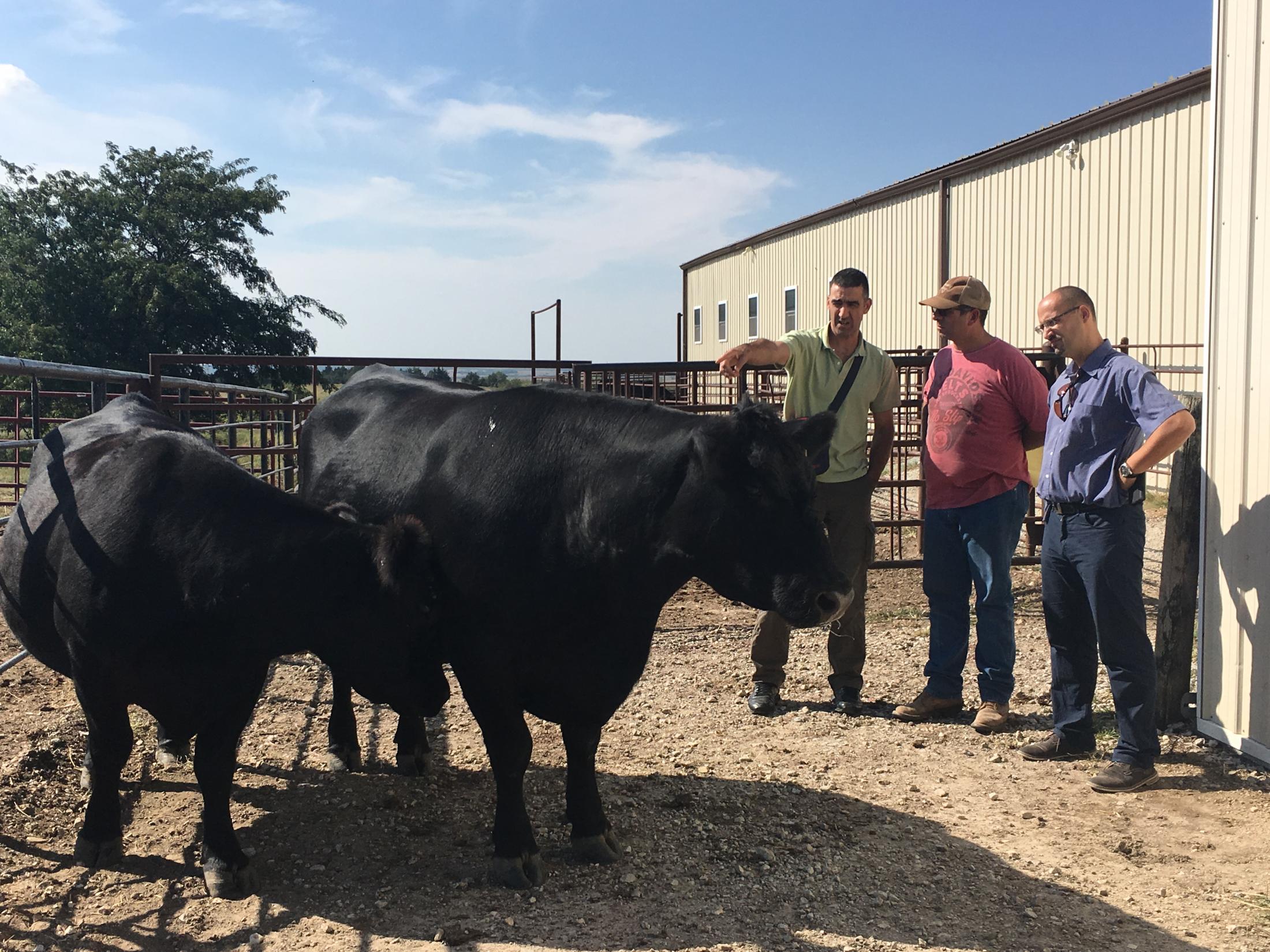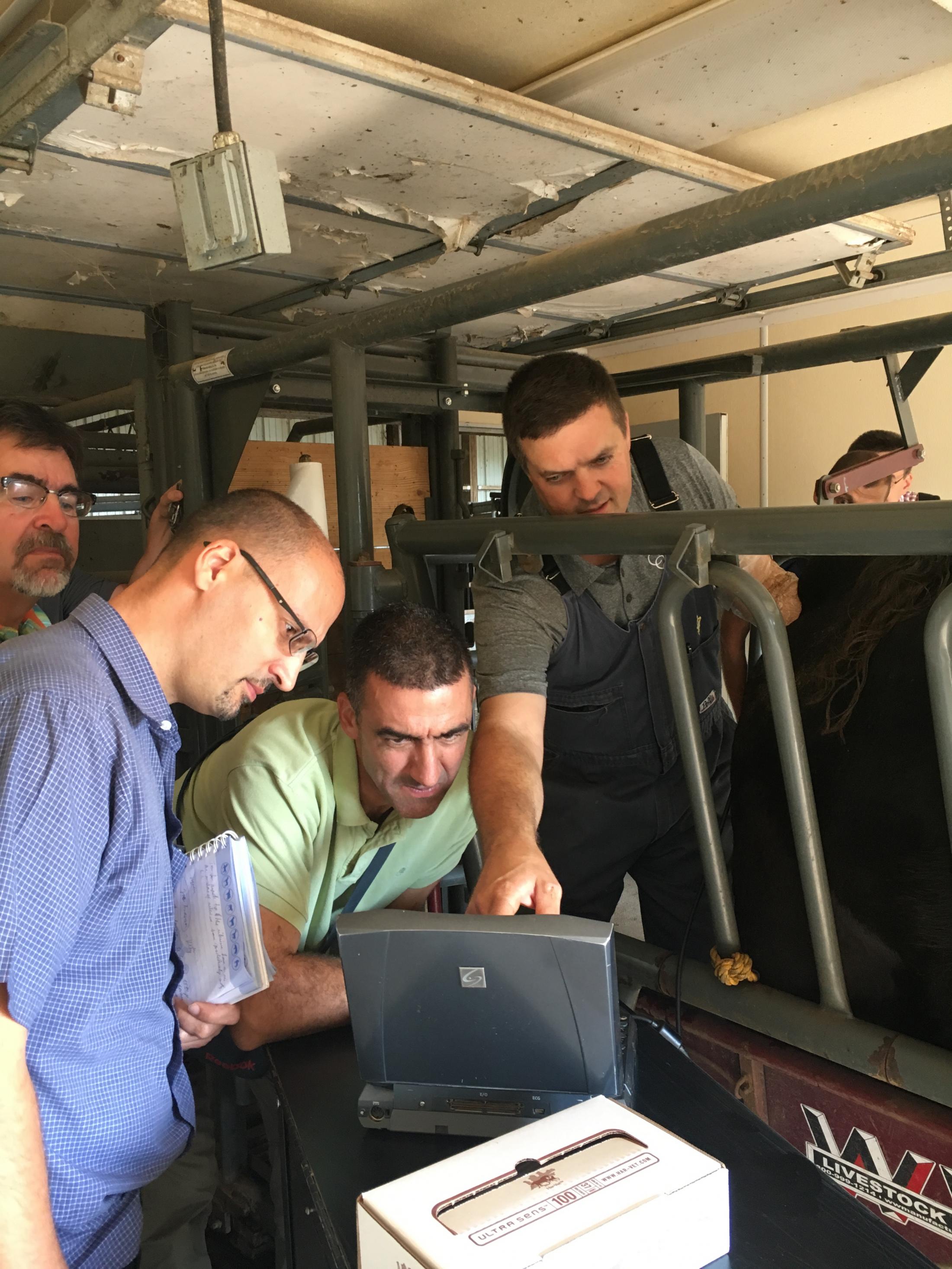
Serbia: Optimizing Cattle Production with High-Quality Genetics

Serbia’s dairy sector is transitioning as local producers face falling prices and less-than-optimal yields. Working with the Cochran Fellowship Program, a team of Serbian livestock specialists visited Kansas in September seeking opportunities to modernize production and adopt U.S. technologies and best practices.
Most Serbian cattle operations focus on dairy using dual purpose breeds, leaving an unfilled gap for premium quality beef. Suzanne Numrich of the Kansas Department of Agriculture explained that, as prices for milk have lowered, the Serbian industry has started seeking new ways to specialize and optimize yields. Given that the United States is a leader in the global beef industry, it makes sense that Serbian producers would look to the United States as a source of high quality genetics to build a new premium beef herd. This Cochran fellowship provides the opportunity for Serbian livestock experts to assess the viability of U.S. cattle in the Serbian context, as well as start building relationships with U.S. producers and exporters.
Thad Geiger of USLGE explained that the real value of the Cochran Fellowship program lies in the chance to build relationships with new overseas partners. “Through the Cochran program, we get the chance to meet face to face, introduce ourselves, and build trust,” said Geiger. More important, through the Serbians first visit, they have been able to create a path forward for building a new beef cattle herd based on U.S. cattle genetics. Geiger explained that, “As a result of introductions facilitated by the Kansas Department of Agriculture, the Serbian group already has an offer for an initial sample shipment of 30 high-quality embryos. This shipment would be accompanied by a technical exchange organized through a Kansas rancher and the Kansas Department of Agriculture.” Building from this foundation, USLGE is optimistic that within five to ten years Serbia could become a regular buyer of U.S. beef cattle genetics.

